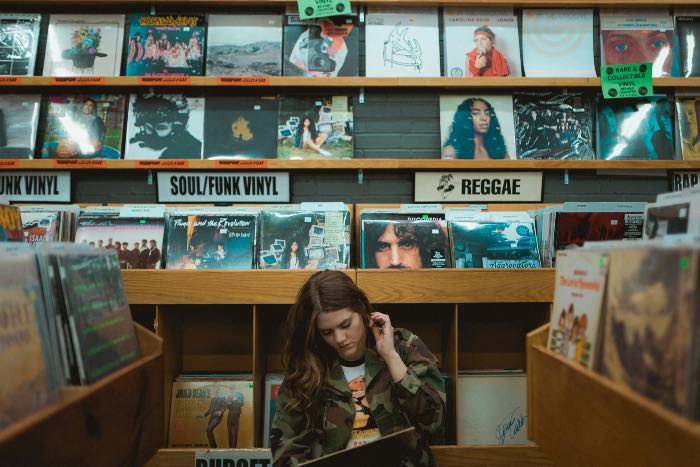
Do algorithms understand love? Of course not. What they offer is what we identify is the result of what we use to define love.
What the creators of these algorithms tell us is that they help us engage with what we love.
But do they? Of course not.
Algorithms are based on engagement.
When Kroger eliminates registers and you stand in line longer, is that proof you love Kroger more?
No.
It proves that you are willing to stand in line longer than you did before.
What it also proves? That Kroger is willing to manipulate your behavior.
The problem with the way algorithms are designed and marketed to us is that companies want us to believe the things we engage with most are things we love.
Anybody outraged on the internet can tell you that we don’t actually love it.
But billions of dollars are riding on the idea that we believe we do. We need to guard against that being true.
Love and Spotify
Spotify tells you that what you play the most is your favorite music.
They tell us this while also feeding us what we’ve already played.
This isn’t the same as playing what you want or something random like a radio. It is something else entirely: a kind of self-reinforcing feedback loop cast as telling you what you like.
It thinks you like it because you played it. But you only played it because they offered it to you. And why did they offer it to you? Because you played it yesterday. And why did you play it yesterday? Because they played it for you then.
Then they tell you that you really love it.
We treat this like it makes sense.
After all, aren’t we what we eat? But this is a maxim about choice. It is a way of pointing out what we do and how we think of ourselves and seeing how those may be in conflict. But the algorithm chooses for us. It plays the song, and then, having played it for you, determined that you like it.
This is like someone feeding you fried chicken six nights in a row and then you say “man, I’m an unhealthy eater.”
The choice is key here. As is the awareness.
Algorithms work by taking the agency out of our hands. Along with the awareness. Of what we’re doing and what they are doing to us. We are quite literally othering the responsibility for choosing what we love.
How then can we call that love?
And then, what becomes of our favorites?
My favorite band is My Bloody Valentine. Spotify’s algorithm doesn’t know that. And it rarely plays their music for me. Must I like them less than GusGus, who were my most played artist in 2023? Algorithms say yes.
Most of us would say no.
